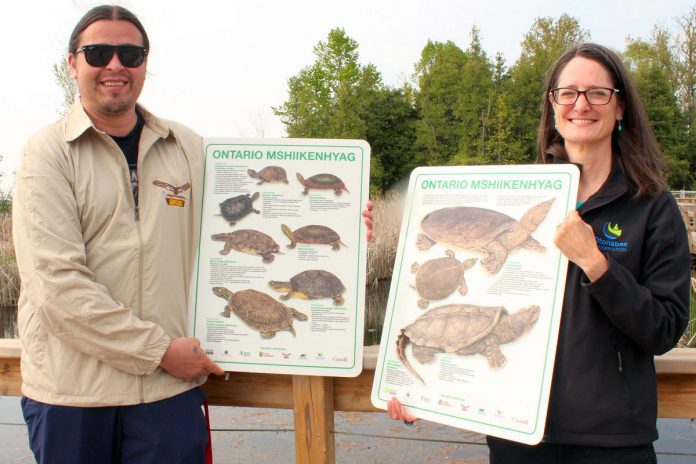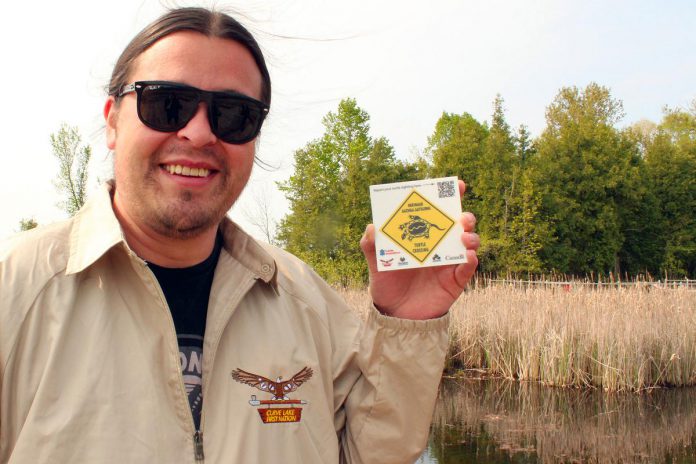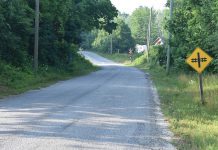
It’s World Turtle Day on Tuesday (May 23), and Curve Lake First Nation Cultural Centre and Otonabee Conservation are raising awareness about local turtles with the installation of turtle education and trail crossing signs at Curve Lake First Nation and along the Jackson Creek Trail in Peterborough.
World Turtle Day is an annual event held every May 23rd as a yearly observance to help people celebrate and protect turtles — called mikinaak in Anishinaabemowin, the local dialect of the Ojibway language — and their disappearing habitats, as well as to encourage human action to help them survive and thrive.
According to experts, turtles are the most threatened of the major groups of vertebrates, with about 75 per cent of turtles worldwide being threatened or already extinct. All of Ontario’s eight species of native turtles are at risk of disappearing.
Mikinaak crossing signs will be mounted on kilometre marker posts along the Jackson Creek Trail, providing trail users with a QR code that connects to the Turtle Guardians Sighting Report Form at www.turtleguardians.com, where you can report sightings of any turtles spotted along the trail to help advance turtle conservation efforts.
Turtle education signs, with text and species names of Ontario turtles translated into Anishinaabemowin, will also be installed along the Jackson Creek Trail as well as at Curve Lake First Nation.
“As a result of colonization, Anishinaabemowin has lost many words, sounds, and phrases that will never be regained,” explains Anne Taylor from the Curve Lake First Nation Education Department in a media release. “That includes some of the turtle species included on these educational signs. Where possible the traditional turtle species names have been used, but new names have been created for some species based on what makes these turtles special to the Curve Lake First Nation community.”

As Anishinaabemowin is mainly a spoken language, work is underway to include QR codes that link to audio clips of Curve Lake First Nation Elders speaking the Anishinaabemowin species names so that visitors can hear the pronunciation of the local dialect.
“Otonabee Conservation is proud to be part of this project and grateful for the opportunity to share turtle education in Anishinaabemowin and English languages,” says Meredith Carter, Otonabee Conservation’s watershed management program manager.
“Otonabee Conservation is looking forward to continued collaboration with the Curve Lake First Nation to incorporate Anishinaabemowin names into educational signage at more Conservation Areas,” adds Jessie James, manager of conservation lands.
Many turtles are on the move from May to July looking for nesting sites, and they can often be seen crossing roadways. About half of the turtles hit by cars are adult females on their way to lay eggs.
Watch for turtles on roads and help them across if it is safe to do so. You can find information on helping turtles cross the road on the Ontario Turtle Conservation Centre’s website at ontarioturtle.ca.
If you find an injured turtle, call the Ontario Turtle Conservation Centre at 705-741-5000.

























